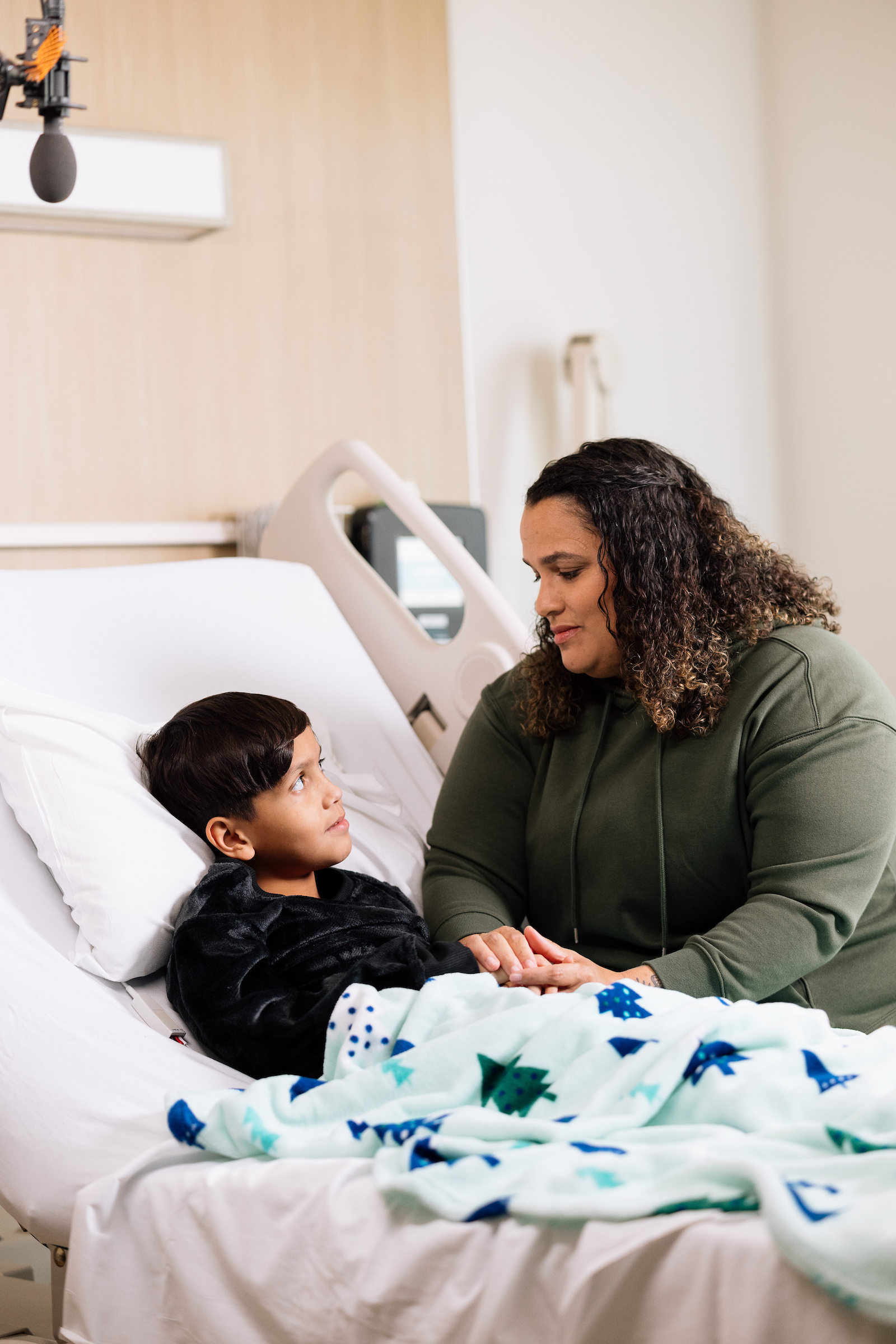physical medicine and rehabilitation
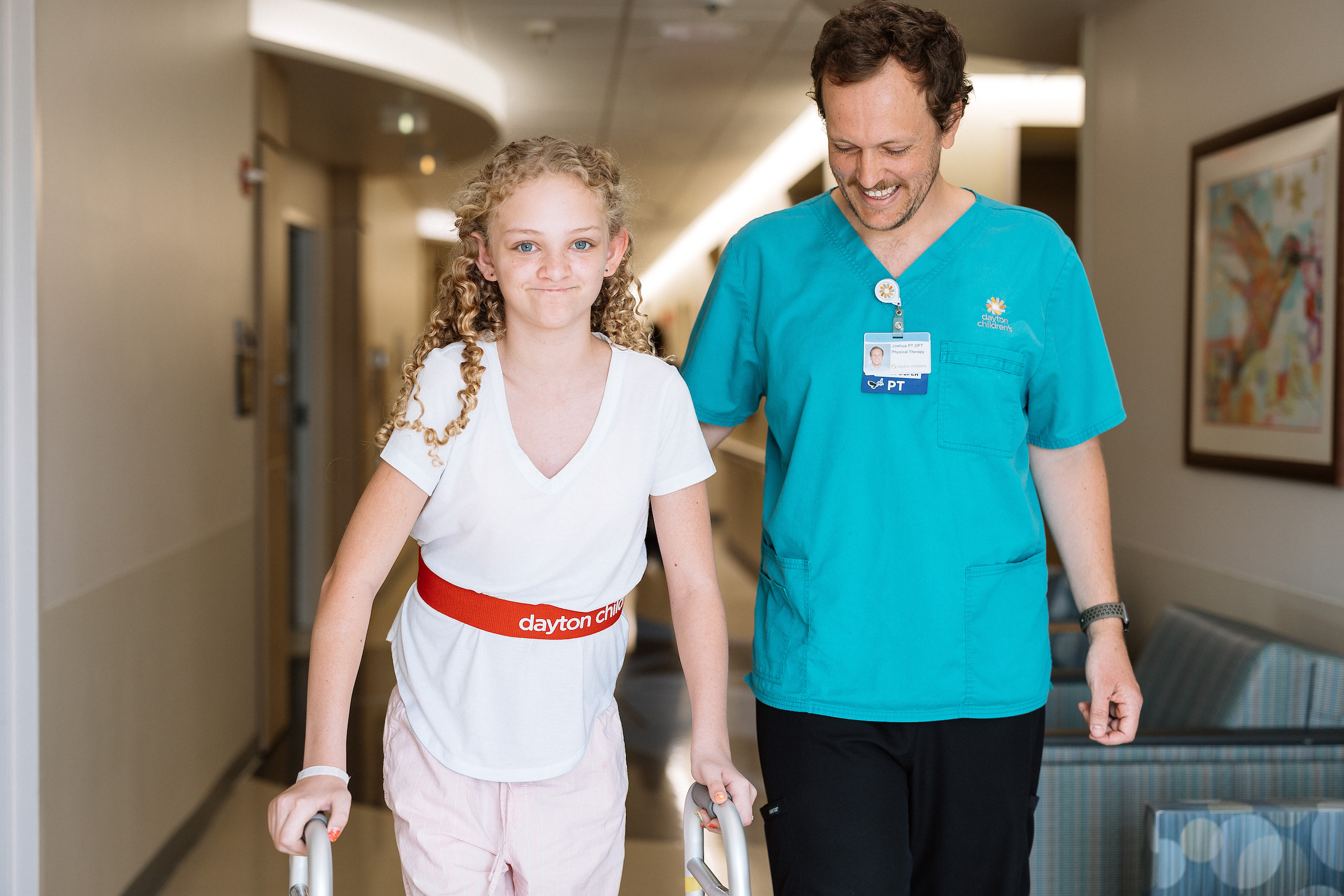
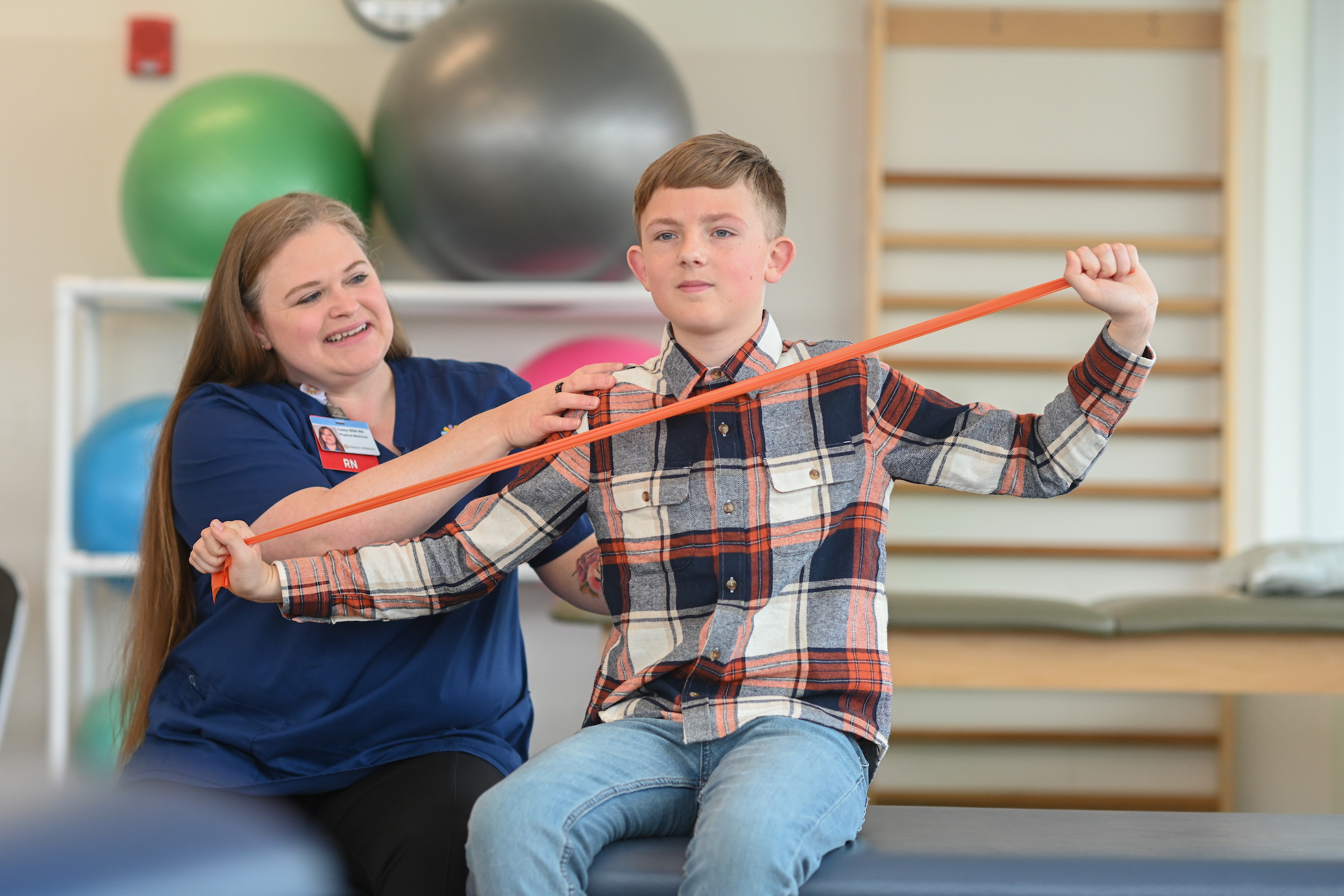
service overview
Dayton Children’s pediatric physical medicine and rehabilitation (PM&R) team helps children with complex injuries and disabilities improve strength, mobility and independence.
why families choose pediatric physical medicine & rehabilitation
Our PM&R providers specialize in diagnosing and managing conditions that affect the brain, spinal cord, nerves, muscles, bones and joints. With advanced training in pediatric rehabilitation medicine, they lead a collaborative team that focuses on improving function and enhancing each child’s quality of life through individualized treatment plans.
Care is coordinated with a multidisciplinary team that includes:
- Physical, occupational and speech therapists
- Nurses, orthotists and prosthetists
- Psychologists, dietitians and social workers
We also partner closely with specialists in neurology, neurosurgery, orthopedics, developmental pediatrics and sports medicine to deliver seamless, comprehensive care across the rehabilitation continuum.
personalized treatment plans for every child
Every child’s journey is unique, and so is their care plan. Our PM&R team works with families to create customized treatment goals that address medical, developmental and emotional needs. Whether your child is recovering from an injury or managing a lifelong condition, our focus is on restoring function, building confidence and helping them thrive at home, at school and in the community.
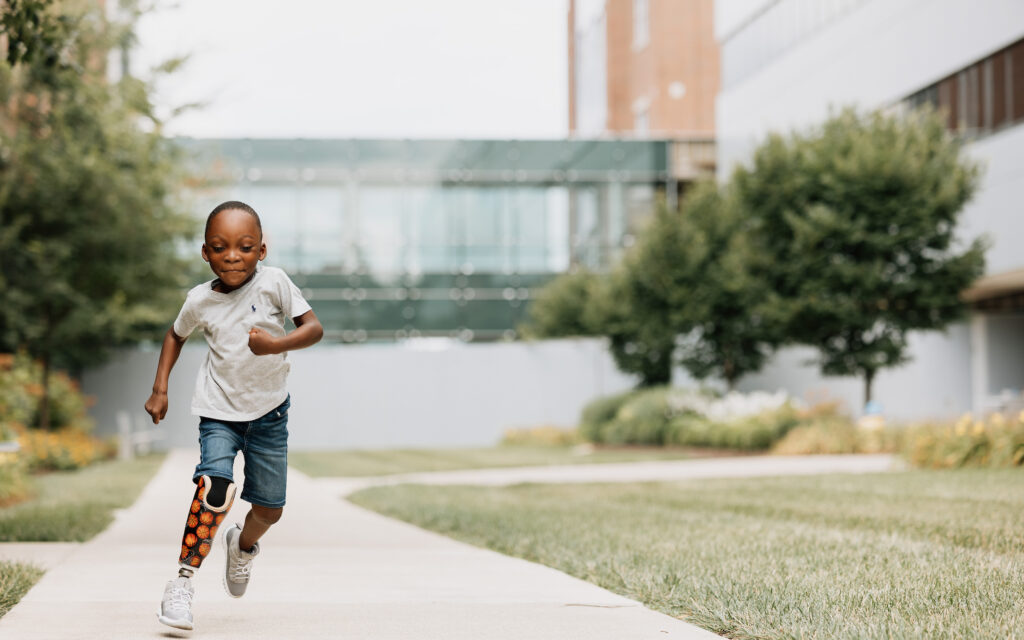
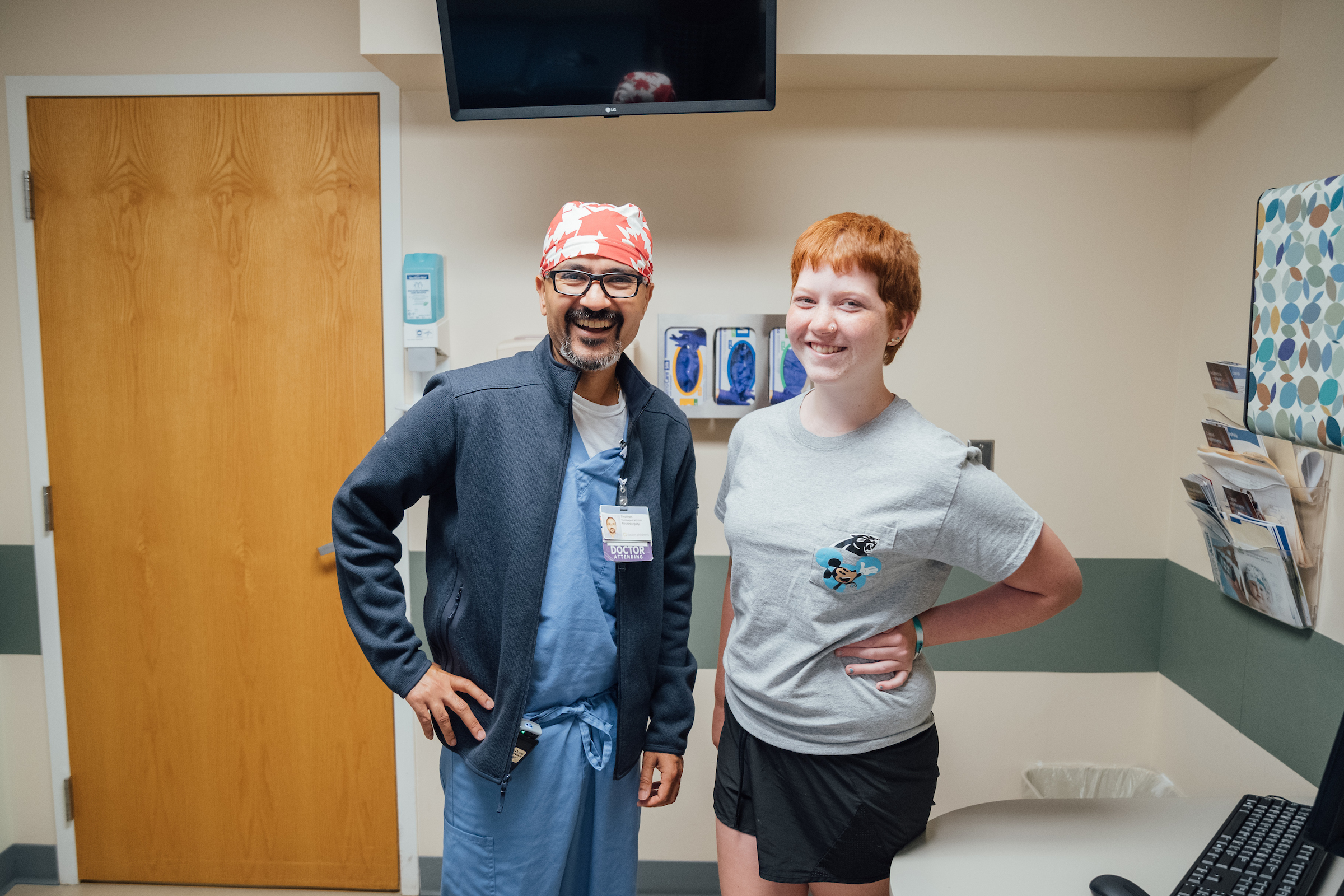
inpatient rehabilitation
For children who need more intensive therapy, Dayton Children’s inpatient rehabilitation program provides expert, family-centered care in a supportive environment. Led by our pediatric physical medicine and rehabilitation physicians, the program helps children recover strength, mobility and independence after serious injuries, surgeries or illnesses.
Each child’s treatment plan is personalized to meet their medical, emotional, educational and social needs. Our multidisciplinary team—including therapists, nurses, psychologists and child life specialists—works together to ensure a smooth recovery and a successful transition home.
advanced spasticity management
Some children with neurological or musculoskeletal conditions experience muscle stiffness or tightness, called spasticity, which can make movement or daily activities difficult. At Dayton Children’s, our pediatric PM&R physicians offer advanced treatment options to safely manage spasticity and improve comfort and function.
Our spasticity management services may include:
- Therapeutic exercise and stretching to maintain flexibility
- Physical and occupational therapy to improve movement and coordination
- Bracing or splinting to support proper alignment
- Medication management and, when appropriate, Botulinum toxin (Botox®) injections to help relax tight muscles and reduce pain
Each child’s care plan is customized to meet their specific goals and improve their ability to move, play and participate in everyday life.
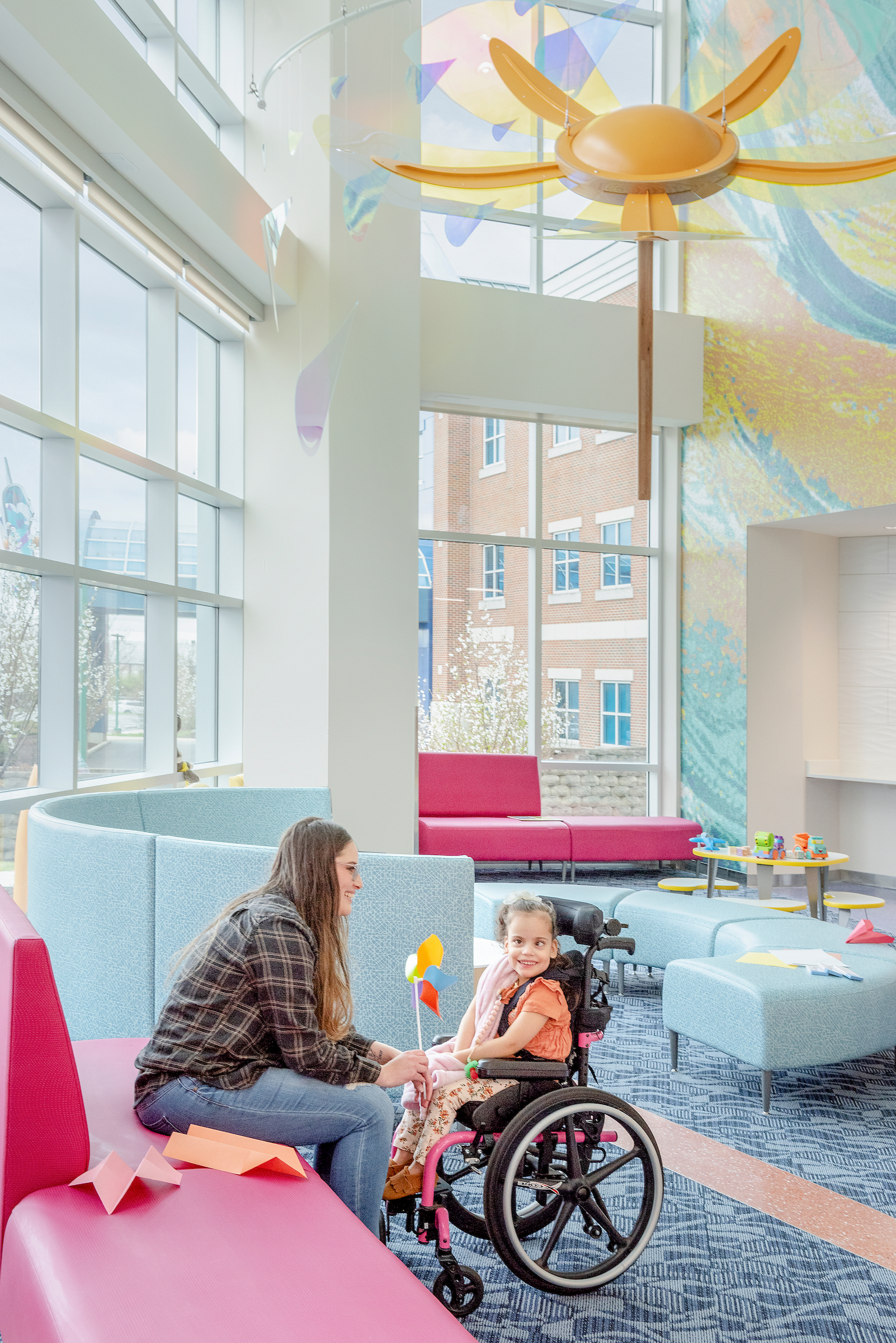
conditions we treat
Dayton Children’s supports the treatment of a wide range of pediatric conditions through physical medicine and rehabilitation.
- Amputation/limb deficiency
- Arthritis
- Autism Spectrum Disorder
- Brachial plexus injuries
- Brain injury (traumatic and non-traumatic)
- Burns
- Cancer
- Cerebral Palsy (CP)
- Concussions
- Developmental coordination disorder
- Developmental delays
- Diabetes (type 1)
- Diabetes (type 2)
- Down syndrome
- Encephalitis
- Failure to thrive
- Fine motor dysfunction
- Gait abnormalities
- Genetic disorders
- Head and spinal cord injury
- Meningitis
- Muscular dystrophy and muscle disorders
- Musculoskeletal conditions
- Neurological disorders
- Neuromuscular disorders
- Orthopedic injuries in children
- Peripheral nerve injuries
- Prematurity
- Spasticity
- Spina bifida (myelomeningocele)
- Spinal cord injury
- Strokes
- Torticollis
- Transverse myelitis
- Upper extremity burns
- Upper extremity orthopedic injuries
- Visual motor/visual perceptual deficits
programs & clinics
Children with cerebral palsy often need care from many specialists. At Dayton Children’s, we bring the experts to one place—so your child can receive coordinated, comprehensive care and a personalized treatment plan without the stress of multiple appointments. Our clinic is led by a developmental pediatrician and includes specialists in rehabilitation, orthopedics, nutrition, therapy, and more, all working together to support your child’s health and development from birth through young adulthood.
Dayton Children’s myelomeningocele clinic provides coordinated, multidisciplinary care for infants, children, and teens with spina bifida, tethered cord, and related conditions. Our team includes specialists from neurosurgery, orthopedics, urology, rehabilitation, nutrition, therapy, and more—all working together in one clinic to support your child’s health, development, and quality of life.
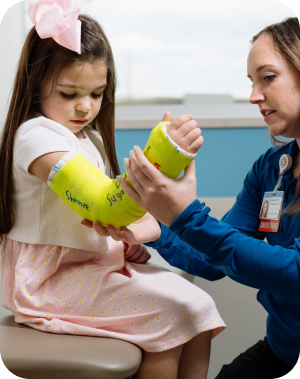
meet our physical medicine and rehabilitation providers
Our physical medicine and rehabilitation providers bring expertise and compassion to every child’s care. Find a provider today.

news and blogs
Stay up-to-date with the latest insights from Dayton Children’s. We’re always working to share helpful, real-world content for families navigating care for children with physical challenges.

patient stories
Real families, real results. These stories from families show how our physical medicine and rehabilitation team goes above and beyond to help kids heal, grow and thrive. Explore how our care team makes a difference for children just like yours.
for your visit
For all your visits with our physical medicine and rehabilitation team, please wear comfortable and loose clothing and bring:
- Insurance information
- Any brace or orthotics
- Any appropriate images (x-rays, MRI’s) related to your condition
- Any required forms from your child’s school
- Names and contact information for anyone else you would like to be included in the care plan. These may include doctors, athletic trainers or school officials.
Depending on what you are being seen for, you can expect the following:
concussion evaluation visit
- Review of injury and symptom history with PM&R nurse
- Evaluation by pediatric PM&R physician
- Review of diagnosis, recovery and treatment of concussion
- Development of individualized treatment plan based on your symptoms
- Potential referral to physical therapy, occupational therapy, speech therapy, or psychology.
- Recommendations for return to school.
rehabilitation consult visit
- Plan for approximately one hour for this visit
- Review of medical history and current problems or symptoms with PM&R nurse
- In depth neurologic and musculoskeletal evaluation by pediatric PM&R physician
- Recommendations for imaging, lab work, medication management if indicated
- Possible referral to physical therapy, occupational therapy, speech therapy, orthotist for bracing, and consideration of equipment such as wheelchairs, medical strollers, walkers, etc.
- Instructions for follow up
spasticity/botulinum toxin evaluation visit
- Plan for approximately one hour for this visit
- Review of medical history and current problems or symptoms with PM&R nurse
- In depth neurologic and musculoskeletal evaluation by pediatric PM&R physician
- Review of indications, contraindications, risks and benefits of botulinum toxin injections
- Discussion of other available spasticity management treatment options including stretching, therapy, medications, and bracing.
- Development of a botulinum toxin injection plan if indicated
- Explanation of obtaining insurance authorization of botulinum toxin injections
- Planning for future visit of botulinum toxin injections
botulinum toxin injection procedure visit
- Plan for approximately 30 minutes for this visit
- Wear comfortable loose clothing so appropriate body part can be exposed for injection
- Bring favorite toy, blanket or tablet to decrease anxiety and help patient relax during this visit
- Skin will be prepped with alcohol and numbed with “cold spray” if desired prior to injections into each muscle
- Your child will be able to move and be comforted immediately after injections are completed (similar to a vaccine)
- Your child may resume activity that day with no aggressive stretching
find more resources for your visit
Get checklists, resources, and helpful tips for before, during, and after your visit to Dayton Children’s—so you know exactly what to expect.

hours & locations
Our pediatric physical medicine and rehabilitation team sees patients at Dayton Children’s locations across the region.
a step toward recovery
Whether your child needs rehabilitation after a serious injury or ongoing care for a complex condition, our physical medicine and rehabilitation team is here to help them regain strength and confidence. Request a referral today from your provider.
